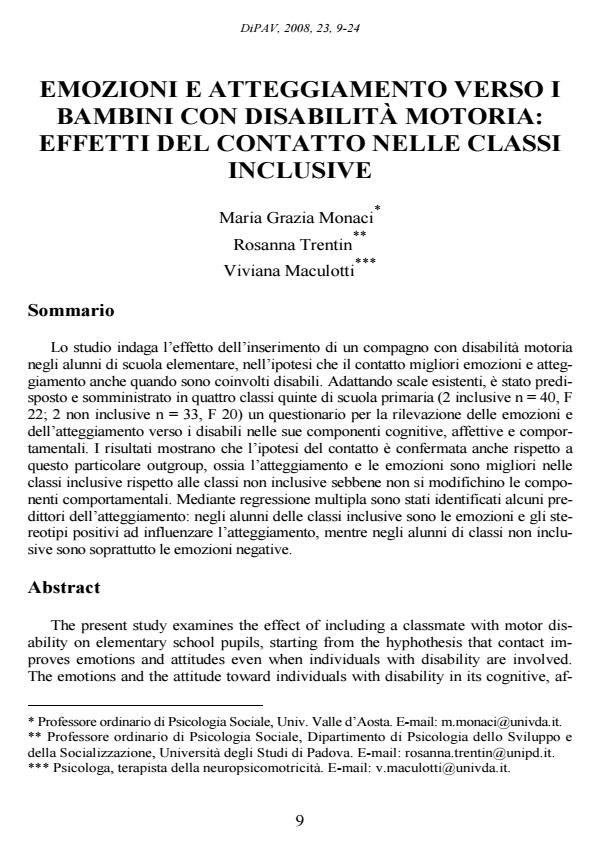Emozioni e atteggiamento verso i bambini con disabilità motoria: effetti del contatto nelle classi inclusive
Titolo Rivista DiPAV - QUADERNI
Autori/Curatori Maria Grazia Monaci, Rosanna Trentin, Viviana Maculotti
Anno di pubblicazione 2008 Fascicolo 2008/23 Lingua Italiano
Numero pagine 16 P. 9-24 Dimensione file 397 KB
DOI
Il DOI è il codice a barre della proprietà intellettuale: per saperne di più
clicca qui
Qui sotto puoi vedere in anteprima la prima pagina di questo articolo.
Se questo articolo ti interessa, lo puoi acquistare (e scaricare in formato pdf) seguendo le facili indicazioni per acquistare il download credit. Acquista Download Credits per scaricare questo Articolo in formato PDF

FrancoAngeli è membro della Publishers International Linking Association, Inc (PILA)associazione indipendente e non profit per facilitare (attraverso i servizi tecnologici implementati da CrossRef.org) l’accesso degli studiosi ai contenuti digitali nelle pubblicazioni professionali e scientifiche
Emozioni e atteggiamento verso i bambini con disabilità motoria: effetti del contatto nelle classi inclusive - The present study examines the effect of including a classmate with motor disability on elementary school pupils, starting from the hyphothesis that contact improves emotions and attitudes even when individuals with disability are involved. The emotions and the attitude toward individuals with disability in its cognitive, affective, and behavioral components were measured by a questionnaire devised adaptating existing scales and administered to the pupils of four elementary school classes (2 inclusive, n = 40, F 22 and 2 non-inclusive, n = 33, F 20). Results show that the contact hypothesis is confirmed also with this special outgroup. In other words, attitude and emotions are better in the inclusive than the non-inclusive classes, although behavioural components do not change. Multiple regression analyses have identified some predictors of attitude: positive emotions and stereotypes influence the attitude of pupils in the inclusive class, while negative emotions particularly influence the attitude of pupils in the non-inclusive classes.;
Maria Grazia Monaci, Rosanna Trentin, Viviana Maculotti, Emozioni e atteggiamento verso i bambini con disabilità motoria: effetti del contatto nelle classi inclusive in "DiPAV - QUADERNI" 23/2008, pp 9-24, DOI: